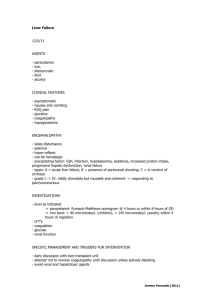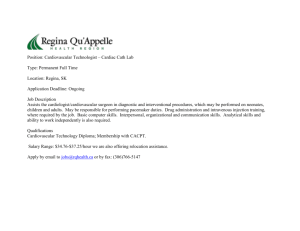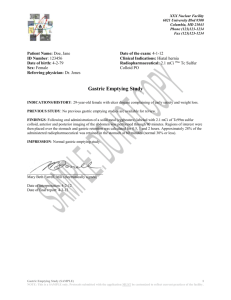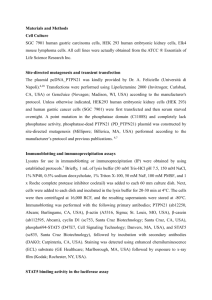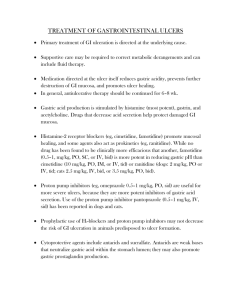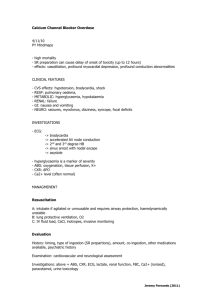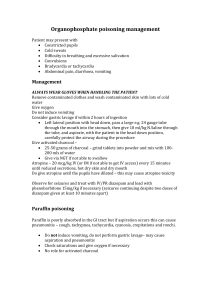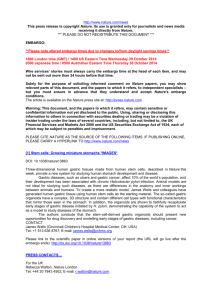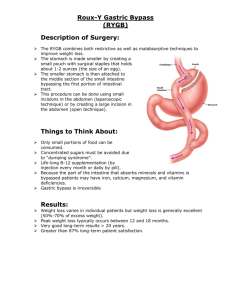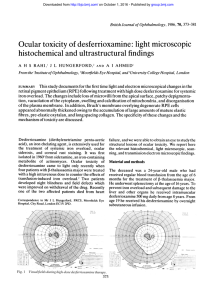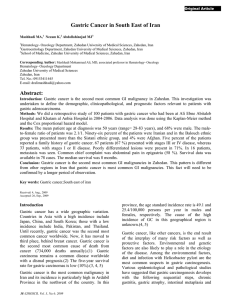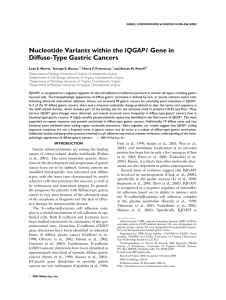Iron Overdose
advertisement
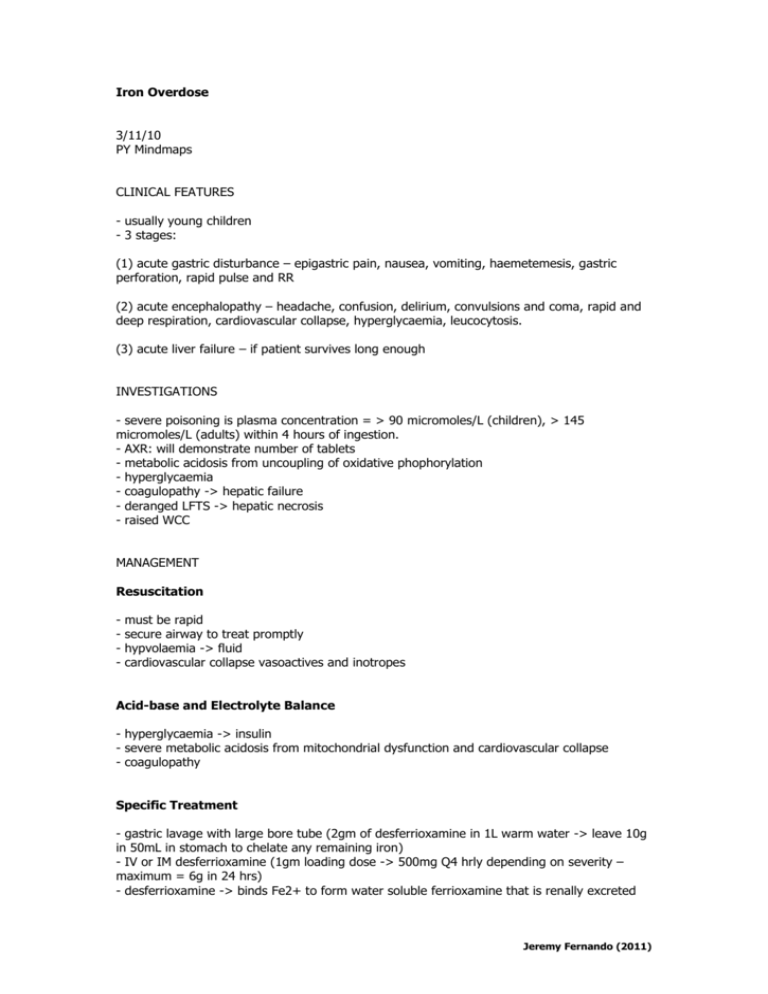
Iron Overdose 3/11/10 PY Mindmaps CLINICAL FEATURES - usually young children - 3 stages: (1) acute gastric disturbance – epigastric pain, nausea, vomiting, haemetemesis, gastric perforation, rapid pulse and RR (2) acute encephalopathy – headache, confusion, delirium, convulsions and coma, rapid and deep respiration, cardiovascular collapse, hyperglycaemia, leucocytosis. (3) acute liver failure – if patient survives long enough INVESTIGATIONS - severe poisoning is plasma concentration = > 90 micromoles/L (children), > 145 micromoles/L (adults) within 4 hours of ingestion. - AXR: will demonstrate number of tablets - metabolic acidosis from uncoupling of oxidative phophorylation - hyperglycaemia - coagulopathy -> hepatic failure - deranged LFTS -> hepatic necrosis - raised WCC MANAGEMENT Resuscitation - must be rapid secure airway to treat promptly hypvolaemia -> fluid cardiovascular collapse vasoactives and inotropes Acid-base and Electrolyte Balance - hyperglycaemia -> insulin - severe metabolic acidosis from mitochondrial dysfunction and cardiovascular collapse - coagulopathy Specific Treatment - gastric lavage with large bore tube (2gm of desferrioxamine in 1L warm water -> leave 10g in 50mL in stomach to chelate any remaining iron) - IV or IM desferrioxamine (1gm loading dose -> 500mg Q4 hrly depending on severity – maximum = 6g in 24 hrs) - desferrioxamine -> binds Fe2+ to form water soluble ferrioxamine that is renally excreted Jeremy Fernando (2011) - can use HCO3- (controversial) Underlying Cause - whole bowel irrigation with polyethylene glycol gastric lavage laparotomy or endoscopic tablet removal (if tablets seen on plain XR) exchange transfusion with plasmapheresis dialysis - limited efficacy - look into home environment and access to other medications - complications: GI strictures, bowel obstruction Jeremy Fernando (2011)
